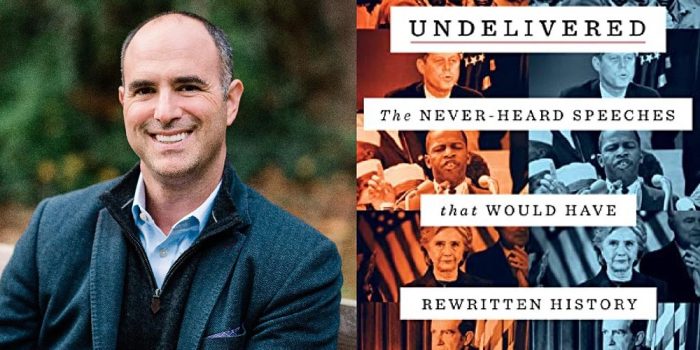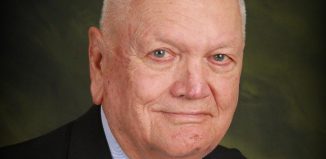Between You and Me: A book that lets us consider what might have been said
By Leah S. Dunaief

“What if,” is always an intriguing question. This is true for our personal lives, as well as for history. And one way to consider many historic “what ifs” is through a newly published book by Jeffrey Nussbaum, one of President Biden’s speechwriters, called, “Undelivered.” This is a compilation of speeches, never given, by historical figures, whose words Nussbaum tracked down over 20 years.
These speeches include, among others, the draft of apology that was prepared for General Dwight Eisenhower, had D-Day ended in failure, and Hillary Clinton’s victory speech.
Civil rights leader John Lewis’ original speech for the March on Washington, August 28, 1963, in which Martin Luther King Jr. spoke his iconic “I’ve got a dream” words, is also revealing of the tension among the civil rights leadership. PBS, the television news hour, interviewed Nussbaum this past Monday, and he said that Lewis had originally intended to declare, “We will march through the South, through the heart of Dixie, the way Sherman did. We shall pursue our own scorched-earth policy and burn Jim Crow to the ground — non-violently” but was dissuaded from those words. The sponsors of the March, who feared looking too extreme and harming the chances of passing the civil rights bill, begged him to withdraw that particular rhetoric Lewis, with his back to the wall, most reluctantly changed his words that night, writing and rewriting his draft at the base of the Lincoln Memorial until it was acceptable, but the earlier text is in the book.
One of the most fascinating speeches never given was the one awaiting the arrival of President John F. Kennedy on the lectern in Dallas on November 22, 1963. In that text was Kennedy’s warning of the existence of “a rise in the far-right wing camp of voices preaching doctrines wholly unrelated to reality.” He would have said that “we are the watchmen on the wall of world freedom looking outside and INSIDE. [Capital letters are mine.]”
The subtitle of Nussbaum’s book reads, “The never-heard speeches that would have rewritten history,” suggests that had Kennedy’s words been heard, history might indeed have been altered. As it is, people who read it after the assassination just regarded that speech as generally one of foreign policy.
These speeches demonstrate how outcomes rest on the razor’s edge of history. Fascinating are “those warnings made in their moment of time,” according to Nussbaum, “that resonate even more clearly today.”
Another historic instance mentioned by Nussbaum was of the three speeches written for Al Gore in the 2000 election. Gore was to give none of them that night. One was a victory speech, the second was a concession, and the third was in the event Gore won the Electoral College but lost the popular vote — prescient of the 2016 election. Nussbaum was one of those speechwriters, and that experience inspired him to write the book about other undelivered speeches.
Not all the speeches included in the book are about politicians and policy. There is the one by Barry Jenkins, the director behind the 2017 award-winning movie, “Moonlight.” Some of you may remember the flub that night, in which the wrong picture was initially announced as the winner and the wrong cast mounted the stage at the Academy Awards before the correction was made. In the chaos, Jenkins never got to say what winning that award meant for him. But here, in Nussbaum’s book, he does get to tell what he would have said.
“They were filming in Liberty City, Miami,” explained Nussbaum, “and as in many poorer neighborhoods, there wasn’t sufficient lighting. They had to bring in lights, which attracted children to the set. At one point during the filming, [Jenkins] looks over to Video Village, where all the monitors and editing equipment were, and he sees a young man wearing his [Jenkins’] headset who’s just planted himself in [Jenkins’] chair.”
“And in that moment, I saw in this child the possibility which I hadn’t believed I could ever see for myself,” Jenkins, who is Black, would have read. How poignant. And missed.







